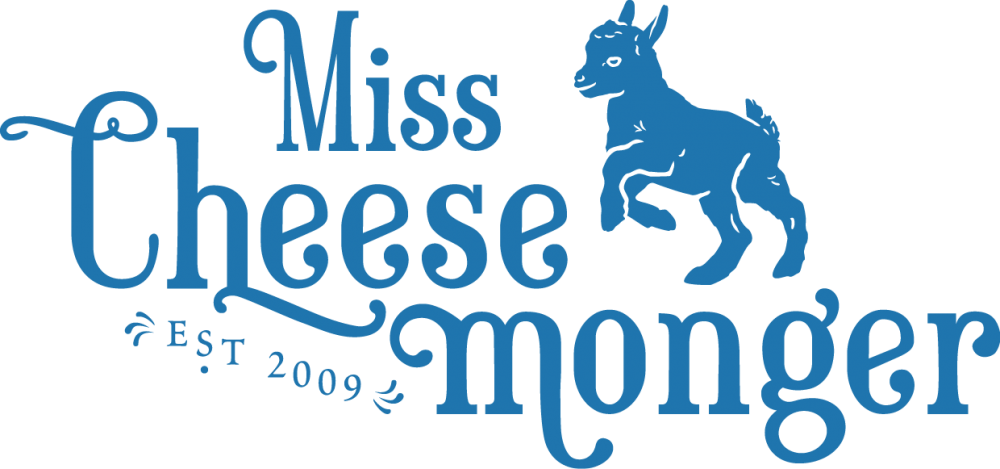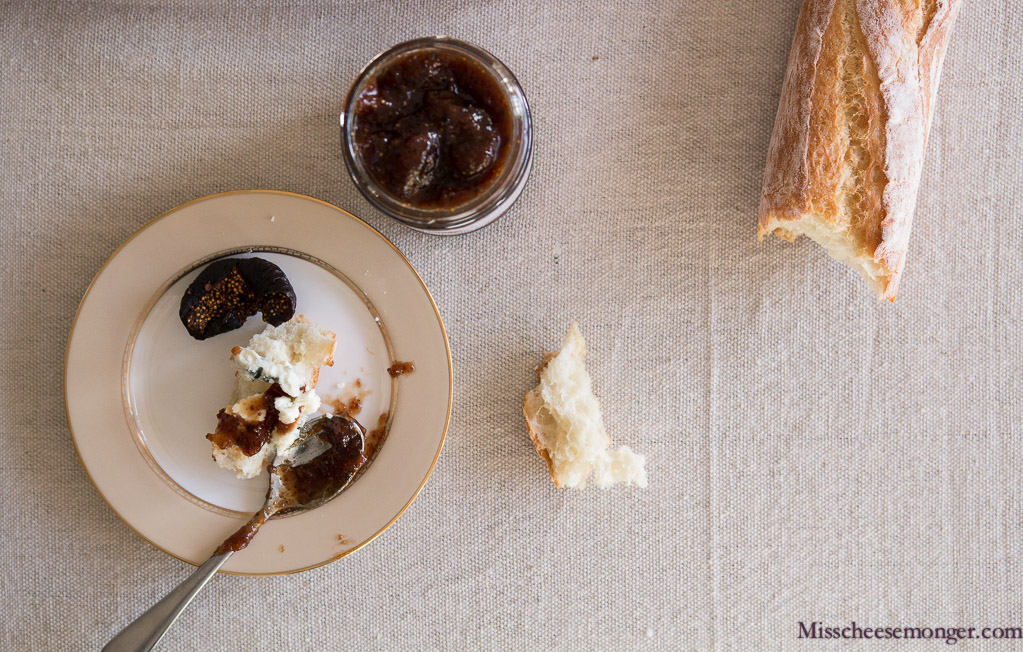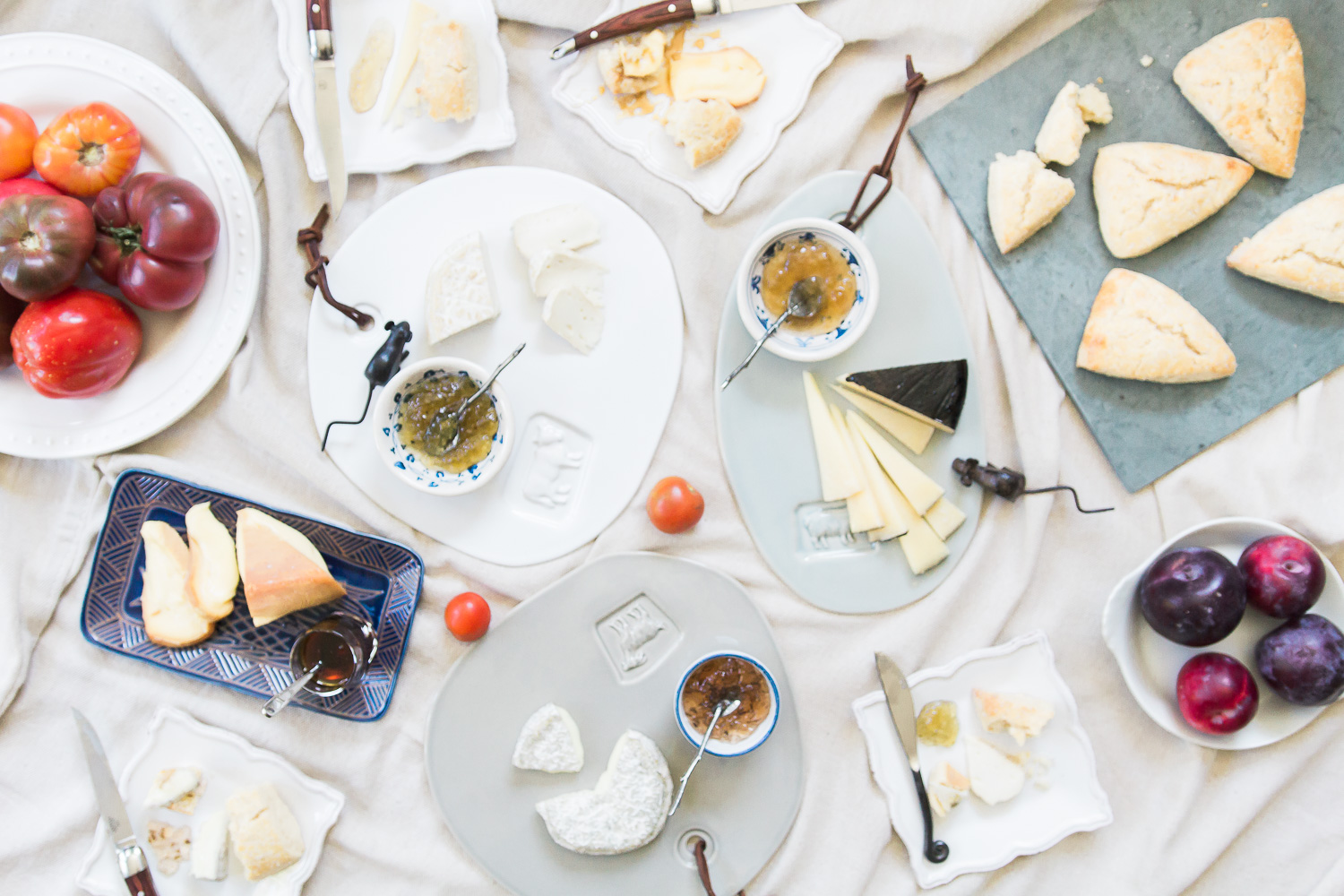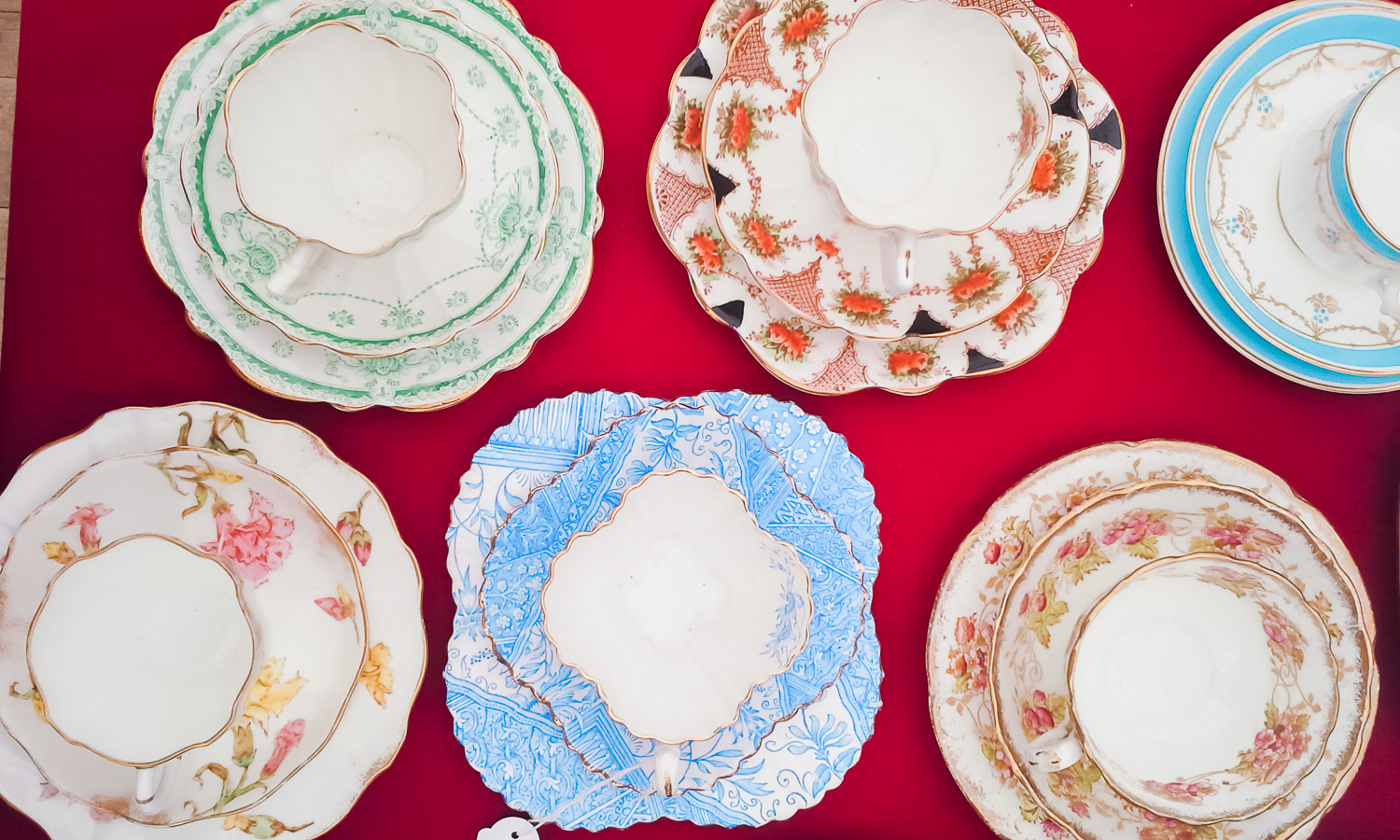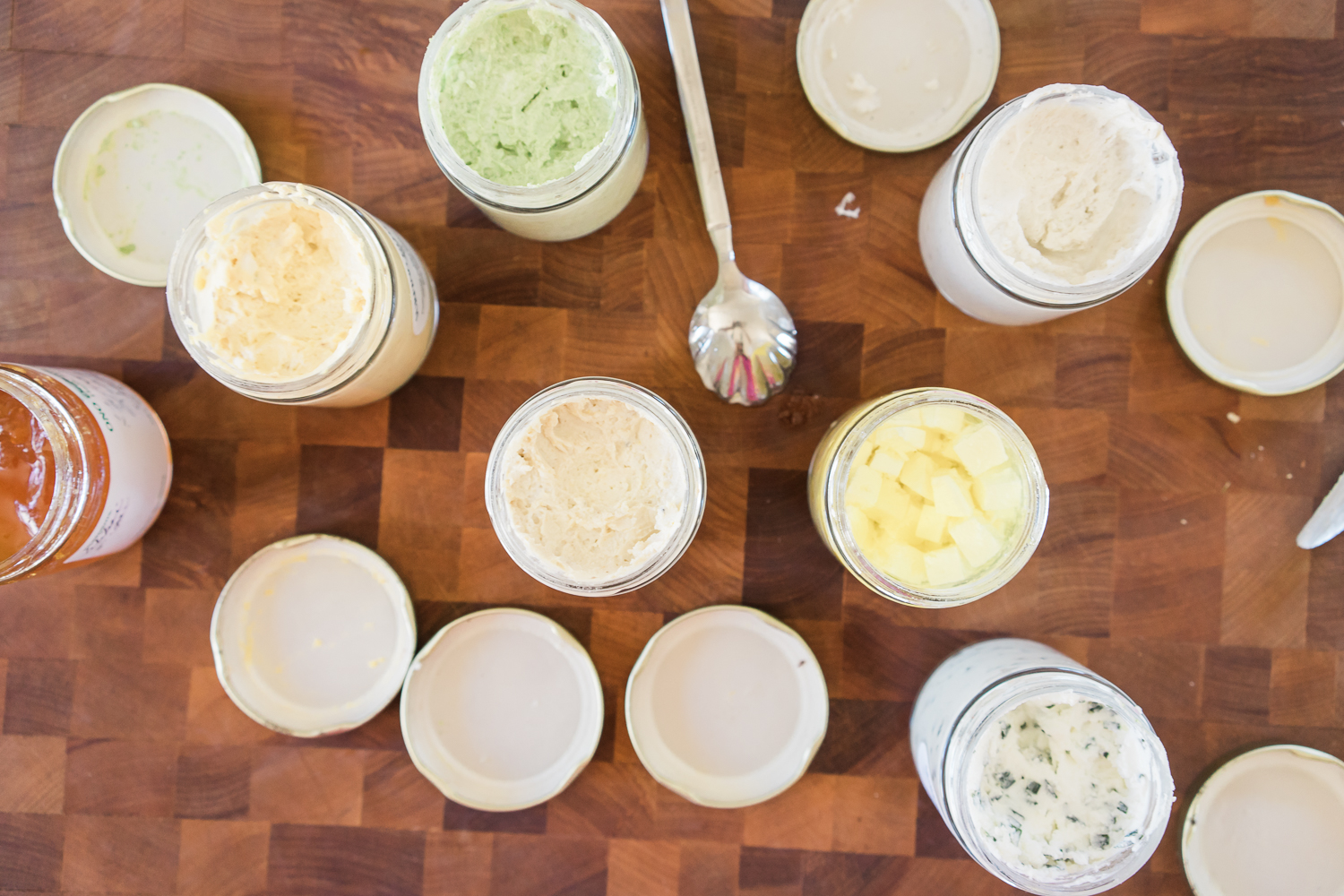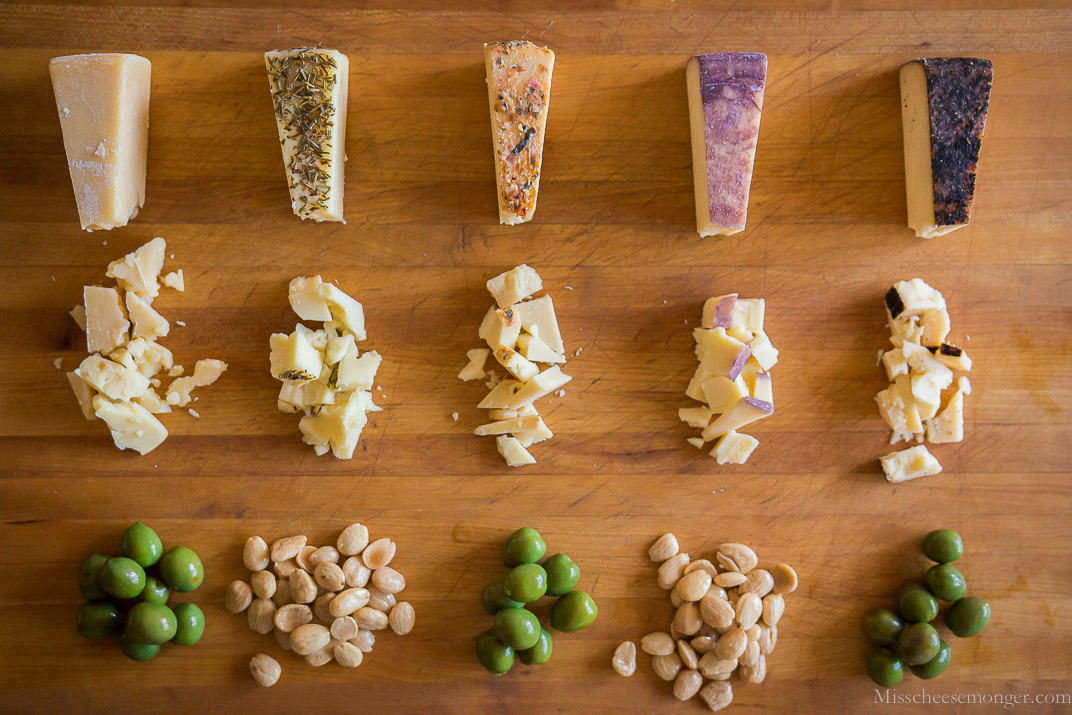Hello cheese lovers! Wow, what a week it has been! I am SO proud to see that Miss Cheesemonger made it into the Bold Italic last week, in a list of 4 Awesome San Francisco Food Bloggers. If you aren’t following me on Instagram or Pinterest yet, you should! There’s a lot to see and chat about over there! I love responding to your comments!
This week—well, every week—I’m thinking a lot about singing (I’ve got an audition tomorrow! Eee!) and cheese. It occurred to me that they share some similarities that I want to share with you!
Making cheese and singing require mastery of insanely technical skills.
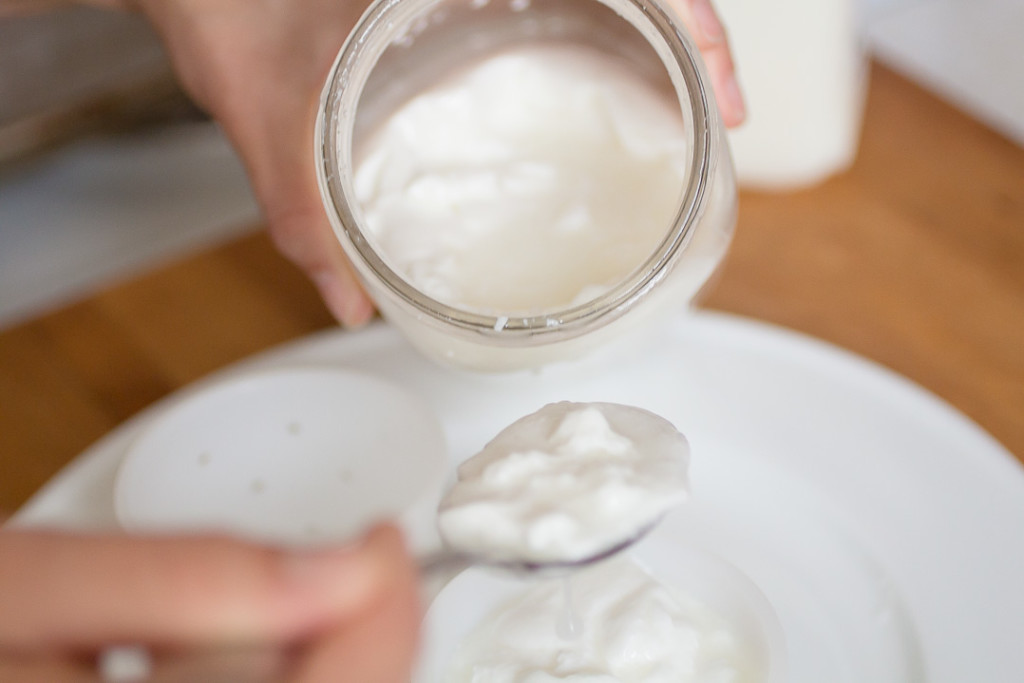
Making cheese is an extremely precise skill that combines so many variables—milk quality (which depends on your animals, land, food, water, stress levels, and more), humidity, temperature, cultures, ambient bacteria, timing, curd sizes . . . you get the idea. Cheese makers have to take all of these changing variables into account every day as they step up to the cheese vat. There’s a lot to think about, and it takes a lot of time, skill, and patience to master.
Similarly, singing classically is an enormous technical undertaking that takes years to master (that’s not even counting understanding the dramatic part of singing!). Singers need to learn how the breathing mechanism works, how to keep sound quality consistent with every vowel throughout their range, even at those pesky register breaks, and when singing at crazy speeds. They need to learn how to balance their airflow on all their notes. They need to keep tension out of places like their tongue, their throat, their face, and neck, and keep it where it belongs—in the torso, where the breath does all the work. There is no limit to the amount of time a singer can spend perfecting her craft.
Good luck trying to sing Una Voce Poco Fa without adequate training! This is Joyce DiDonato, and she’s definitely got enough training.
A fine cheese and a fine voice take time, and the right environment, to develop.
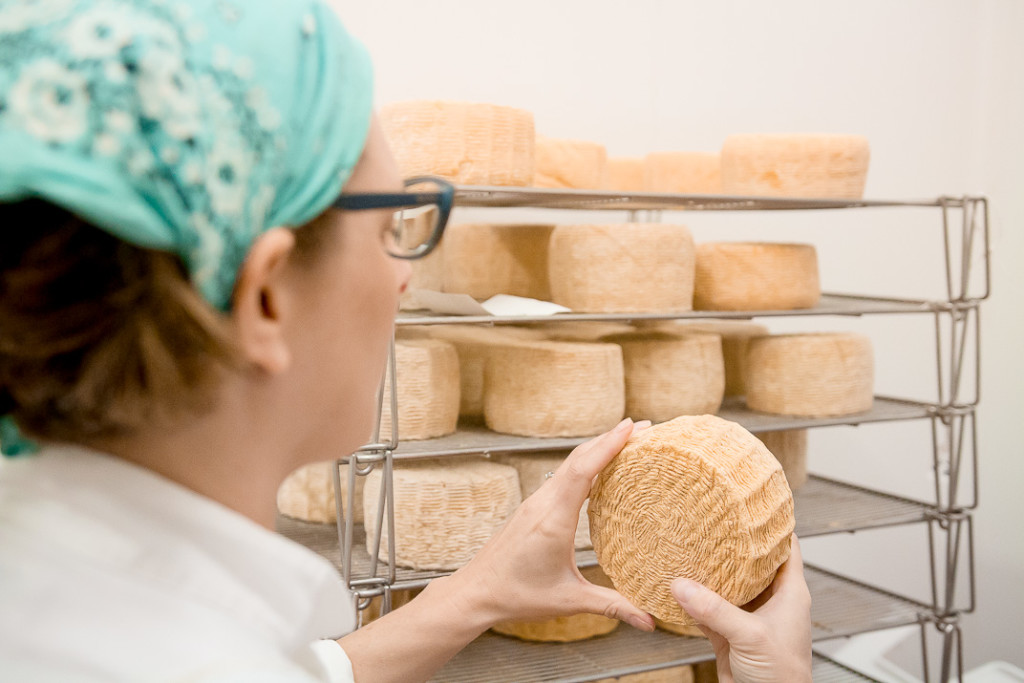
Cheese, once it is formed into wheels, spends a period of time aging (except for fresh cheeses). Cheeses are periodically checked and flipped. Aging room conditions are VERY thoroughly monitored, but you can’t hurry a cheese to be ripe before it wants to be. The right flavors, aromas, and textures can only develop when a cheese is provided the right environment in which to flourish.
In singing, it’s very similar. You can’t just ask an 18-year-old singer with a fistful of classical training to sing a monster aria like Casta Diva. It can be highly damaging, not to mention, it probably won’t sound right. Voices take time to develop, with the proper guidance by the right teachers, coaches, conductors, and directors. There is a story that the great Italian castrato Caffarelli spent 6 years just practicing exercises off of one sheet of paper without singing a single aria. After that time, his teacher told him he was the greatest singer in Europe. And yes, he was considered one of the greatest singers of all time, but that incubation period was essential to his success.
To get an idea of the work that goes into singing, check out this master class with Renée Fleming and Rafael Moras. I had the great pleasure of seeing Rafael do some operatic improv in LA! He’s awesome!
When done right, both can give you a new appreciation for life.
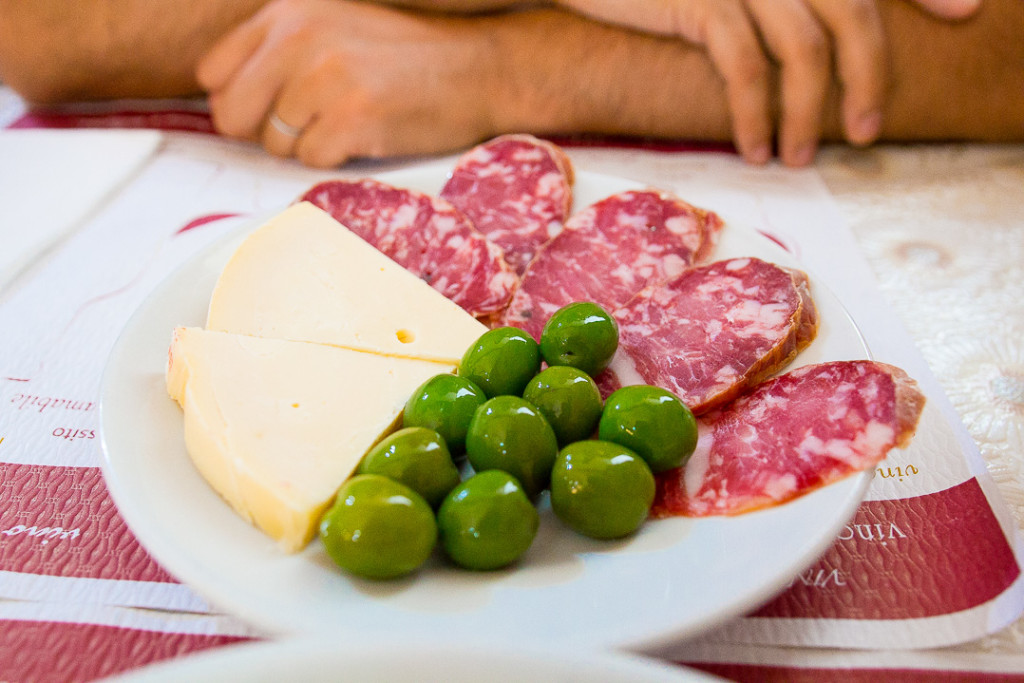
The more I learn the connection between the cheese on my table, the cheesemonger who sold it to me, the road that cheese took to get to the shop, the cheese maker, the dairy farmer, the animal who provided the milk, the land that animal grazes on, the grasses it eats, the water, air, and sunlight that nourish those grasses, the more I see cheese as a truly wondrous product. It’s more than just a little wedge of a dairy product—it’s a product that is shaped by land, caring hands, animals, and so many little microbes! There is so much heart and soul that goes into fine cheese, and it is so beautiful to see. You can make some pretty profound human connections through this one food. For instance, when you travel and taste local cheese, you can get a sense of new terroir, and you can connect to new people with new perspectives. How many times have you traced through your last vacation by recalling all of those perfect meals enjoyed with amazing company, or by remembering your visits to the local markets? I know I do that all the time!
With singing, it’s something similar. When I go to an opera, I know there are many hands working to bring this piece together—the composer, librettist, conductor, instrumentalists, director, singers, costumers, set designers, lighting designers, stage crew, theatre personnel, donors, audience . . . there are so many links in the chain! It feels like I am a part of something greater than myself every time I go to see a show, and especially when I perform in one. Together, everyone shares in the joys, sorrows, and desires of what’s happening. That powerful, shared experience is such a moving one that can really stay with you for a long time.
Ahh, the inimitable Lorraine Hunt Lieberson in one of her most monumental roles, Irene in Handel’s Theodora. Her performance still gives me serious goosebumps me years later. She is one of my musical heroes.
Keep on cheesing, my friends! And while you’re at it, hop over to the shop to get your own Miss Cheesemonger tote bag!
